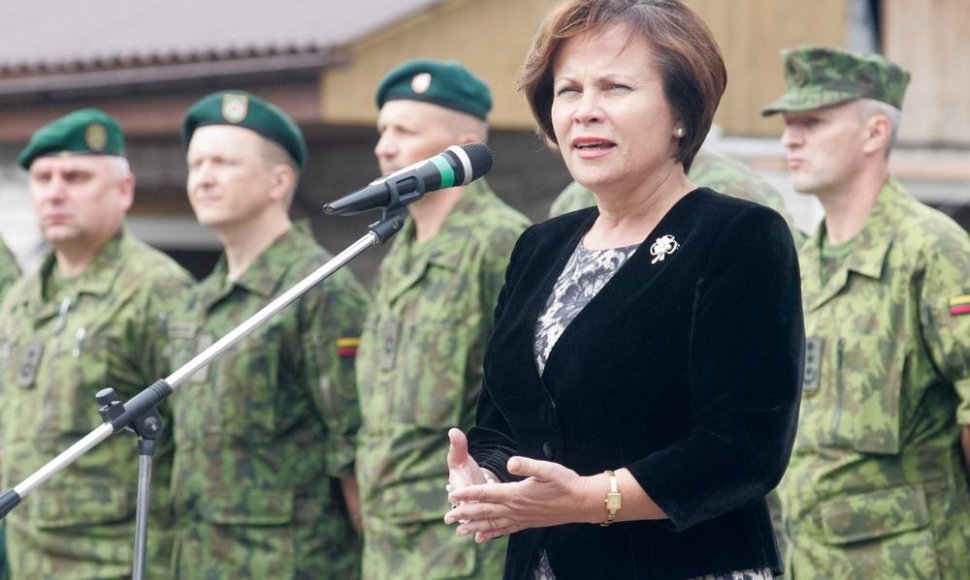In an interview, she made it cleear that the Finance Ministry had proposed its version of the defense funding, which the Defense Ministry found inadequate.
"It's a discussion of the Ministry of Finance, but, of course, we can't agree with the proposals of the minster of finance. It would be really a very bad message for our partners and for our Armed Forces. We will not go forward a single step, if we don't increase our budget. I know what I say - it's a red line. We can't go forward with 0.8 percent [GDP] funding. Savings were done, we did everything we could, and now it should increase at least step by step. This is really the biggest headache for the Ministry of Defense," Juknevičienė told BNS on Friday.
According to the answer received by BNS from the Finance Ministry on Friday, this year's situation is “traditional” - nearly all institutions have requested sums that are far above 2012 levels.
"The Ministry of Finance has sent control numbers to institutions that are basically correspond to this year's levels, as this is the only way of ensuring further decrease of the deficit. Allocation managers have to plan their programs by the control numbers. All remaining objective and subjective needs will be discussed by the government in line with the law on fiscal discipline,” Rasa Jakilaitienė, adviser to the finance minister, told BNS.
Earlier this week, Parliamentary Speaker Irena Degutienė said that reduction funding for defense would run counter the agreement signed in May by all major parties represented in the parliament.
In her words, the current defense funding is insufficient, and Lithuania should follow the Estonian example and raise the financing of its defense sector. Asked whether the media reports about plans to reduce defense funding from 0.8 to 0.75 percent of the GDP in next year's budget draft, Degutienė assured she had not had any reports about 2013 financing plans, as the budget draft was not yet discussed in the government.
Prime Minister Andrius Kubilius has stated that the country would have to coordinate the implementation of the agreement by parliamentary parties on increasing defense funding with budget cuts.
"When we start looking into specific budget figures, of course, it (the defense funding increase) will be one of the key issues, just as it is equally important to implement provisions of the Seimas-ratified fiscal discipline pact and seek that our fiscal deficit continues shrinking gradually," the prime minister told journalists after a Cabinet sitting on Wednesday.
On the eve of the NATO summit in Chicago in May, Lithuania's eleven major political parties signed an agreement on defense funding for 2012-2016. The document states that the country's parliamentary parties, which support Lithuania's role in strengthening NATO's collective defense and security system and the European Union's security and defense policy, make the commitment "to gradually increase funding for the national defense on an annual basis, to seek that 2 percent of GDP were allocated for the national defense system in the long run."
According to Kubilius, Lithuania is estimated to end this year with a budget deficit of around 3 percent. And the next year's target is to cut the deficit by 1 percentage point. Moreover, the prime minister stressed that the upcoming EU Presidency next year will cost the country quite a lot.
Lithuania has come under NATO criticism over insufficient defense spending. Lithuania's current defense spending stands at 0.95-0.97 percent of GDP, while the country has pledged to seek earmarking 2 percent.
During a visit in Lithuania on Friday, Latvia's Defense Minister Artis Pabriks stated his country's defense concept envisaged achieving 2 percent of the GDP for defense by 2020.
"In spring this year, the Latvian parliament passed the concept of defense. It actually suggests that we raise the defense funding up to 2 percent of GDP by 2020. Now, if you want my critical view about this, it is too early to say if we will reach it, because we still have eight years," Pabriks told BNS on Friday.












